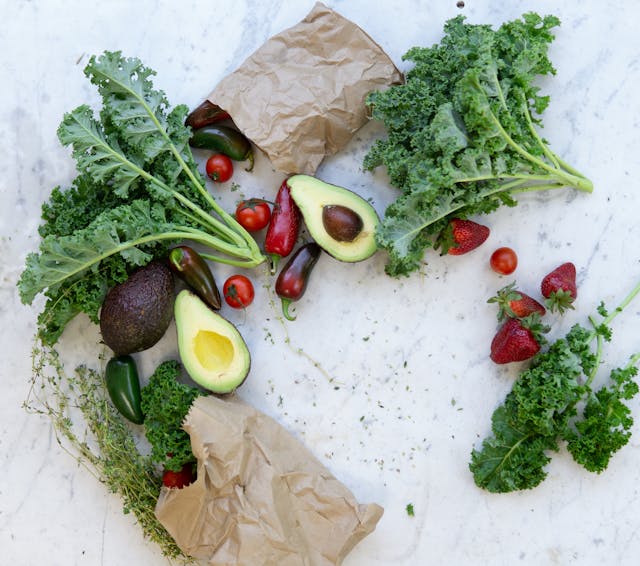Sports Nutrition: Fueling Your Body for Peak Performance
Whether you're an elite athlete, a weekend warrior, or someone just looking to stay active, proper nutrition plays a crucial role in enhancing your performance and recovery. The right foods and fluids can give you the energy you need to power through workouts, improve endurance, and recover faster. Let’s dive into the fundamentals of sports nutrition and discover how you can fuel your body for peak performance.

The Role of Macronutrients in Sports Nutrition
Macronutrients—carbohydrates, proteins, and fats—are the cornerstone of sports nutrition. Each plays a vital role in providing energy, repairing muscles, and supporting overall performance.
Carbohydrates: The Primary Energy Source
Carbs are your body’s preferred energy source, especially during high-intensity exercise. When you consume carbs, they break down into glucose, which is stored as glycogen in your muscles and liver. This glycogen acts as fuel during physical activity.
How to Fuel with Carbs:
-
Before exercise: Aim for a carb-rich meal 3–4 hours before your workout (like pasta or rice) to ensure your body has stored glycogen for energy.
-
During exercise: For longer endurance activities (over 90 minutes), consider consuming fast-digesting carbs such as energy gels, sports drinks, or bananas to maintain energy levels.
-
After exercise: Replenish glycogen stores with carb-rich foods like sweet potatoes, quinoa, or whole grain bread.
Proteins: Building and Repairing Muscle
Protein is essential for muscle repair and growth. When you exercise, especially during strength training or intense workouts, muscle fibers break down. Consuming protein after exercise helps to repair and rebuild these fibers, making them stronger for future performance.
How to Fuel with Protein:
-
Before exercise: A small protein-based snack (such as a Greek yogurt or a handful of nuts) can help support muscle tissue during exercise.
-
After exercise: Consume a protein-rich meal or shake within 30–60 minutes after a workout to kickstart muscle recovery. Aim for about 10–20 grams of protein for smaller workouts and 20–30 grams for intense sessions.
Good sources of protein include chicken, turkey, fish, eggs, tofu, legumes, and protein powders.
Fats: Sustaining Long-Term Energy
While fats aren’t the go-to fuel during high-intensity workouts, they are vital for long-duration or lower-intensity activities. Healthy fats support cellular function, help absorb fat-soluble vitamins, and provide energy when glycogen stores are low.
How to Fuel with Fats:
-
Include healthy fats in your meals regularly, particularly from sources like avocado, olive oil, nuts, seeds, and fatty fish (like salmon).
-
For longer training sessions or events, you can rely on fats once your body exhausts its glycogen stores.
Micronutrients: Supporting Performance and Recovery
While macronutrients take center stage in fueling the body, micronutrients (vitamins and minerals) are equally important. These tiny nutrients support energy production, bone health, immune function, and muscle contraction, all of which play a crucial role in athletic performance.
Key Micronutrients for Athletes:
-
Iron: Essential for transporting oxygen in the blood. Iron-rich foods like lean meats, spinach, and legumes are key for endurance athletes.
-
Calcium and Vitamin D: Crucial for bone health and muscle function. Dairy products, leafy greens, and fortified alternatives are good sources.
-
Magnesium: Important for muscle function and preventing cramping. Sources include nuts, seeds, whole grains, and leafy vegetables.
-
Electrolytes: Sodium, potassium, and chloride help maintain fluid balance and prevent dehydration. These can be replenished with electrolyte-rich drinks or foods like bananas, oranges, and salty snacks.
Hydration: The Unsung Hero of Performance
Water is essential for maintaining bodily functions, including temperature regulation, joint lubrication, and nutrient transport. Proper hydration also helps prevent fatigue, cramps, and muscle breakdown during exercise.
How to Stay Hydrated:
-
Before Exercise: Drink about 16–20 ounces of water 2–3 hours before exercise.
-
During Exercise: For activities lasting less than an hour, water is typically sufficient. For longer events, sports drinks with electrolytes can help replenish lost salts and maintain performance.
-
After Exercise: Rehydrate with water or an electrolyte drink to replace fluids lost during your workout. A good rule of thumb is to drink 16–24 ounces of fluid for every pound lost during exercise.
Pre- and Post-Workout Nutrition: Timing Matters
The timing of your meals and snacks can have a significant impact on performance and recovery. Here’s how to optimize your nutrition around workouts:
Pre-Workout:
-
Eat a balanced meal 3–4 hours before your workout, focusing on easily digestible carbs with some protein. For example, a turkey sandwich on whole-grain bread or oatmeal with fruit.
-
If you don’t have time for a full meal, a smaller snack 30–60 minutes before exercise, such as a banana with peanut butter or a protein bar, can work too.
Post-Workout:
-
Within 30–60 minutes of completing your workout, consume a meal or snack that includes both protein and carbohydrates. This helps your muscles recover and restores glycogen levels. Examples include a protein shake with fruit, a chicken wrap, or a yogurt parfait with granola.
Tip: Avoid excessive amounts of fat immediately after exercise, as it can slow down the absorption of nutrients.

Supplements: Do You Need Them?
While a well-balanced diet should provide most of the nutrients you need, supplements can be helpful for athletes who have specific goals or deficiencies.
Common Supplements for Athletes:
-
Protein Powder: A convenient way to ensure you get enough protein to support muscle recovery.
-
Creatine: Helps improve strength and power during high-intensity exercise and supports muscle recovery.
-
Branched-Chain Amino Acids (BCAAs): Can reduce muscle soreness and improve recovery after intense workouts.
-
Beta-Alanine: Improves endurance by buffering lactic acid buildup, which can delay fatigue during intense exercise.
Note: Always consult with a healthcare provider before introducing new supplements into your routine, as individual needs vary.
Tailoring Nutrition to Your Sport
Different sports and activities require different types of fueling. Here’s a quick overview of how nutrition needs vary based on activity type:
-
Endurance Sports (Running, Cycling, Swimming): Focus on carbohydrates to fuel long durations of activity, combined with protein for muscle repair.
-
Strength Training: Prioritize protein intake to support muscle growth and recovery, along with carbohydrates for energy.
-
High-Intensity Interval Training (HIIT): A balanced mix of carbs, protein, and fats will provide energy and aid recovery.
-
Team Sports (Football, Soccer, Basketball): Carbs for energy and protein for muscle repair, with a focus on hydration.
Conclusion: Fueling for Success
Sports nutrition isn’t one-size-fits-all. By understanding the roles of macronutrients, micronutrients, hydration, and meal timing, athletes can fuel their bodies for peak performance. Whether you're training for a marathon, lifting weights, or playing your favorite sport, the right nutrition can help you train harder, recover faster, and perform at your best. Remember, what you eat and drink matters just as much as the effort you put into your workouts—so fuel your body wisely and see the results.












